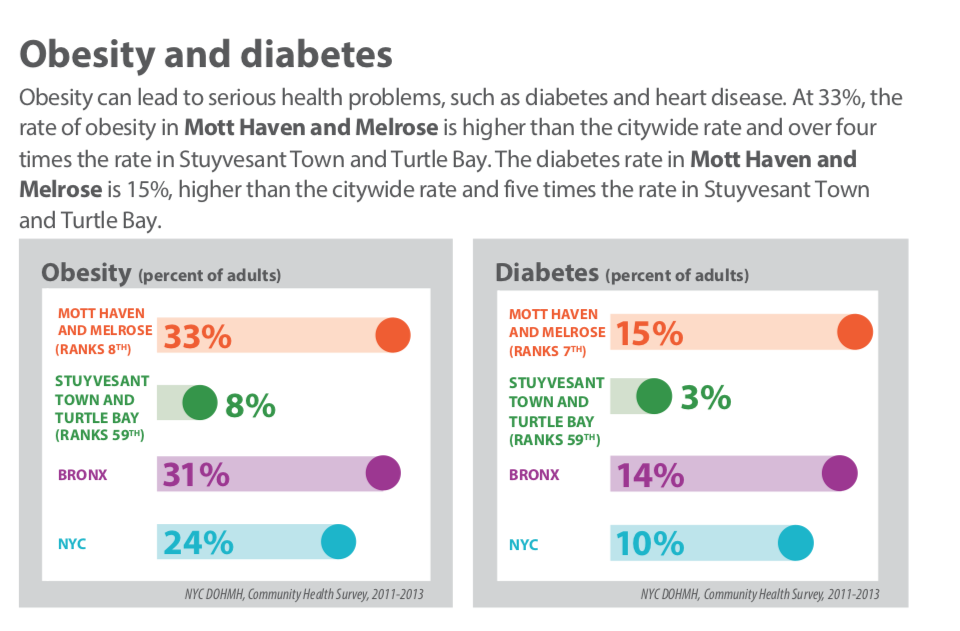
Clarisa Alayeto remembers the panic she felt when an annual doctor visit turned into a life- changing moment.
Back in 2016, Alayeto, then 34, was diagnosed with type 2 diabetes. At the time, she weighed 283 pounds and suffered from high blood pressure and high cholesterol.
A longtime resident of Mott Haven and grew up in the Patterson Houses, Alayeto began having flashbacks of her grandfather going through dialysis treatments and amputations.
“I can’t go through this”, said Alayeto, now a current community organizer and health advocate. “I don’t want to live on medication my entire life.”
She said she was inspired to change her unhealthy habits. “I began to research foods and how to exercise and I discovered where all the sugar I was consuming was coming from.”
To help push for public health changes she says are needed, Alayeto testified last month at a City Council health committee hearing on a bill that would require the Department of Health and Mental Hygiene to produce a semi-annual report on its progress confronting diabetes in the city. The report would provide recommendations on how to reduce and prevent diabetes- related health problems such as lower limb amputations and blindness.
Other bills proposed by council members would require menus to include information on added sugar in foods and would mandate meals targeting children to include healthy beverages.
Health advocates like Alayeto believe that easy access to sugary beverages offered in fast food restaurants and bodegas contributes to the increase of diabetes. According to the New York City Community Health Survey, 987,000 New Yorkers suffer from diabetes and about 19 percent of them do not know they have the disease.
Mark Levine, Chair of the Committee of Health and Council member of the 7th district, who introduced the bills said, “If we are going to win the fight against obesity and type 2 diabetes, we need to empower New Yorkers with knowledge to make better and smarter healthy choices.”
“The situation is unprecedented and a public disgrace in public health,” said Chris Norwood, executive director of Health People, a Mott Haven non-profit that provides peer-to-peer health education. Norwood believes outreach and targeted education can help slash pre-diabetes, as well as help those who already have it.
However, organizations such as Health People may soon lose funding from both the city and the state. Currently, the organization is funded from federal money out of a special grant.
Diabetes is highest amongst black and Hispanic New Yorkers in low-income neighborhoods, data shows. The Bronx has the highest diabetes rates among the boroughs.
“It is unacceptable that in the Bronx people lose their feet to diabetic amputation at twice the rate of patients in Manhattan”, said Dr. Anna Flattau, vice chair, department of Medicine at Montefiore Health Systems in the Bronx.” Social injustice underlies these results.”

